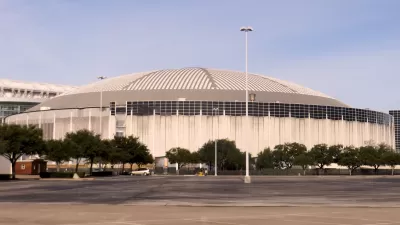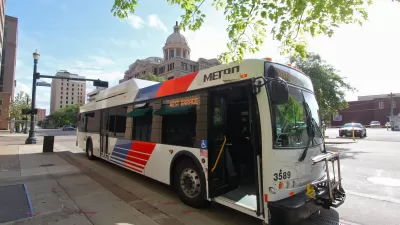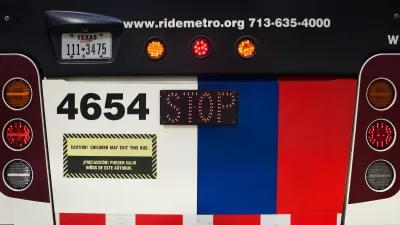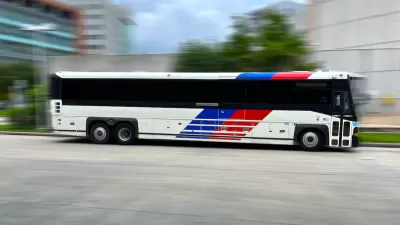A nonprofit hopes to create a viable plan for the iconic stadium—and find a way to pay for it.

The "Eighth Wonder of the World" may soon get a new lease on life, reports Zach Despart for the Houston Chronicle. Houston's Astrodome, which opened in 1965 as the world's first indoor, air-conditioned stadium, is the home of the first installation of the artificial grass known as "Astroturf" and has hosted hundreds of legendary concerts and events.
The stadium, which has been sitting vacant since the early 2000s, is a beloved part of Houston history but has failed to gain the necessary funding for any of its proposed redevelopment schemes. "Over the years, calls to repurpose and rejuvenate the dome have spawned a variety of ideas for converting it to a movie studio, a space-themed park, concert and convention venue, hotel and entertainment complex, even an indoor amusement park. None of those ideas, however, included a financing plan county leaders would support."
Now, a nonprofit group called the Astrodome Conservancy "is seeking the public’s input to craft a pitch to Harris County Commissioners Court, which oversees the building." The group wants to "develop a realistic proposal" for a "community-supported vision for the future of the Astrodome," according to president Beth Wiedower Jackson. Although local leaders seem "unlikely to support" public funding such as bonds, "Wiedower Jackson said the Astrodome Conservancy is in talks with philanthropies and other outside groups about contributing toward a renovation plan."
FULL STORY: Here we go again: nonprofit wants your help with new plan to redevelop the Astrodome

Manufactured Crisis: Losing the Nation’s Largest Source of Unsubsidized Affordable Housing
Manufactured housing communities have long been an affordable housing option for millions of people living in the U.S., but that affordability is disappearing rapidly. How did we get here?

Americans May Be Stuck — But Why?
Americans are moving a lot less than they once did, and that is a problem. While Yoni Applebaum, in his highly-publicized article Stuck, gets the reasons badly wrong, it's still important to ask: why are we moving so much less than before?

Research Shows More Roads = More Driving
A national study shows, once again, that increasing road supply induces additional vehicle travel, particularly over the long run.

Judge Halts Enforcement of Anti-Homeless Laws in Grants Pass
The Oregon city will be barred from enforcing two ordinances that prosecute unhoused residents until it increases capacity and accessibility at designated camping sites.

Advancing Sustainability in Los Angeles County Schools
The Los Angeles County Office of Education’s Green Schools Symposium brings together educators, students, and experts to advance sustainability in schools through innovative design, climate resilience strategies, and collaborative learning.

Using Old Oil and Gas Wells for Green Energy Storage
Penn State researchers have found that repurposing abandoned oil and gas wells for geothermal-assisted compressed-air energy storage can boost efficiency, reduce environmental risks, and support clean energy and job transitions.
Urban Design for Planners 1: Software Tools
This six-course series explores essential urban design concepts using open source software and equips planners with the tools they need to participate fully in the urban design process.
Planning for Universal Design
Learn the tools for implementing Universal Design in planning regulations.
City of Moreno Valley
Institute for Housing and Urban Development Studies (IHS)
City of Grandview
Harvard GSD Executive Education
NYU Wagner Graduate School of Public Service
City of Cambridge, Maryland
Newport County Development Council: Connect Greater Newport





























